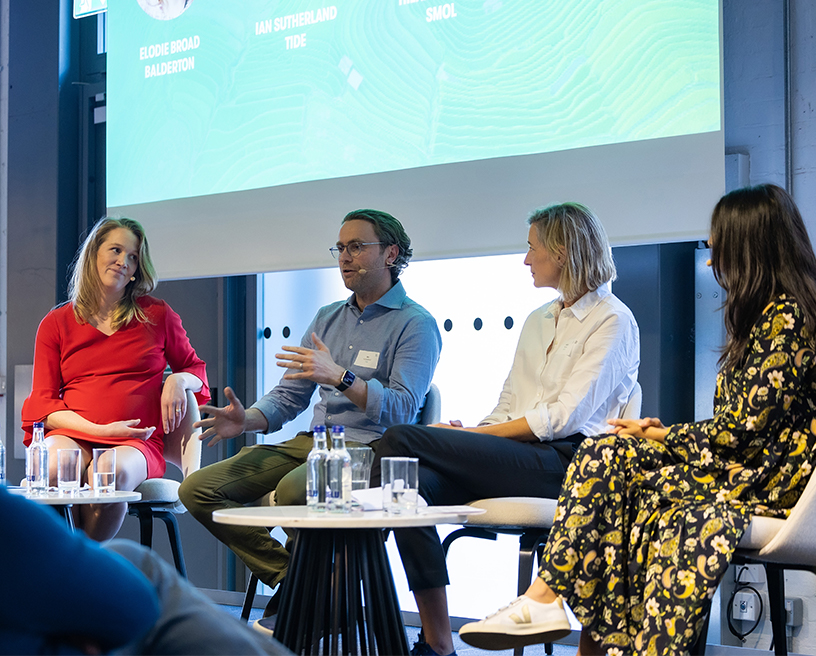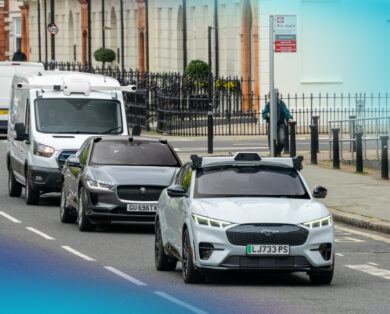- Portfolio News
- 15 July, 2024

At a recent event to celebrate the launch of our Start-up Guide to ESG, our panellists shared insights and learnings from their own experiences incorporating ESG into a high-growth start-up.
It was our pleasure to host our panellists Lena Taylor, Head of D&I at GoCardless, Hilary Strong CMO at smol and Ian Sutherland, CFO and head of Net Zero at Tide. From building a diverse workforce to striving for net zero, they shared practical insights and learnings from their own journeys to help start-up founders and operators on their way.
There are a myriad of considerations when it comes to implementing ESG and building a sustainable business. We’ve recapped some of the highlights below, and for more expert insights, practical tips and checklists by stage, visit the Start-up Guide to ESG.
Start somewhere, and start now.
Getting started, somewhere – no matter how small – is something every company can and should be doing now, panellists agreed. It’s easy to fall into the trap of spending months and months theorising and debating, but there are a number of steps you can take now to get started. The best way to find out what works is by doing.
Start small, and the agenda will grow.
Lena Taylor Head of D&I, GoCardless
Learn quickly and be agile.
In the early days, it’s unlikely that the people driving ESG within your start-up are pure experts in the space, and there certainly won’t be any perfect models you can simply imitate for your business. It can feel a little like you’re building the plane as you’re flying it – but in such a rapidly changing ESG landscape, being agile and a fast-learner will work to your advantage.
Try, fail, try again. Focus on what you can learn and adapt, and remember to celebrate the small wins.
Don’t let perfect perfection be your enemy… Don’t worry about doing the wrong thing.
Ian Sutherland CFO and Head of Net Zero, Tide
Maintain focus, and align your approach with your business strategy.
The scope of ESG can feel vast and daunting, particularly as an early-stage start-up founder or operator. Where should you start? How should you prioritise your efforts?
Taking a strategic, focused approach is the key to success. Think carefully about where it is that you can have the most impact – based on your products, services and customers – and invest in that area. As the smol team discovered, having a focused impact strategy that supports business goals – for example through enabling brand differentiation and awareness – is a win-win.
There’s so much to be done and that can feel quite overwhelming. Some of our best work in the last couple of years has come from really understanding what can we have an impact on, as a business, as a brand, as a team, and so where do we need to focus and point our efforts?
Hilary Strong CMO, smol
Engage your employees. They are your superpower!
When it comes to building and implementing your ESG strategy – don’t forget to ask your employees for their input. Strong employee engagement will take your ESG initiatives and products to the next level, and all our panellists agreed it has been instrumental to their own success. Building a ‘green team’ that brings together team members from different functions can be a great way of having a collaborative, employee-led ESG program.
Talk to your customers to hear what do they care about? Who are they? What do they know about ESG issues? What are they trying to do to become more sustainable? When you can find some synergy with your customers, you also can have more impact.














